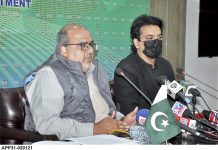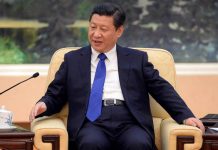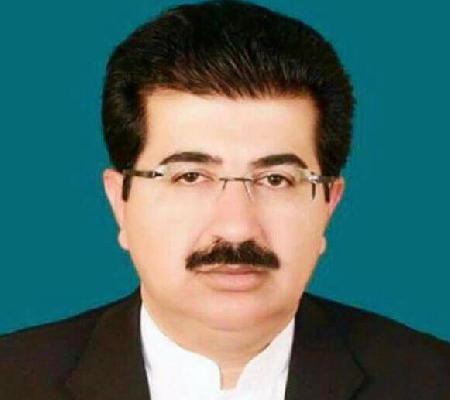ULAANBAATAR: Mongolia’s President Tsakhiagiin Elbegdorj on Saturday presented a horse of native Mongolian breed to visiting Adviser on Foreign Affairs Sartaj Aziz during a nomadic Naadam Festival that was attended by leaders and participating delegations of the Asia–Europe Meeting (ASEM) Summit.
The horse was named ‘Rustam’ by the adviser. The native Mongol horse is purported to be largely unchanged since the time of Genghis Khan (1162–1227), a founder and emperor of the Mongol empire. Nomads living in the traditional Mongol fashion still hold more than three million animals, which outnumbers the country’s human population.
Despite their small size, they are horses, not ponies. These horses live outdoors all year, dealing with harsh temperatures, graze and search for food on their own. The mare’s milk is processed into the national beverage airag. Some animals are slaughtered for meat. Other than that, they serve as riding and transport; they are used both for the daily work of the nomads and sometimes in horse racing.
In Mongolia, Naadam is the most widely watched festival and is believed to have existed for centuries in one fashion or another. This annual midsummer event has its origin in different activities including military parades and sporting competitions like archery, horse riding and wrestling.
In 2010, the Naadam festival was inscribed on the representative list of the Intangible Cultural Heritage of Humanity of UNESCO. The event was rounded off with a gala dinner hosted by the Mongolian president, followed by performance of Mongolian culture. On the fringes of the summit, a meeting between Adviser Sartaj Aziz and Minister for Foreign Affairs of Mongolia L Purevsuren also took place in which they decided to explore new avenues of cooperation in the economic, commercial, cultural and educational sectors.
Sartaj said that both the countries could explore cooperation in the areas of agriculture and livestock, health, science and technology and human resource development through specialised training programmes. Both the sides also agreed to enhance people-to-people contacts as well as academic and scholarly interaction.
It was further agreed to enhance mutual cooperation between the two countries at multilateral forums. Recognising the importance of regional connectivity for economic benefits, Sartaj and Purevsuren stressed the need to promote trans-boundary energy and infrastructure projects. The adviser thanked the Mongolian minister for the warm welcome and hospitality and commended excellent arrangements made for the summit.













.jpg)